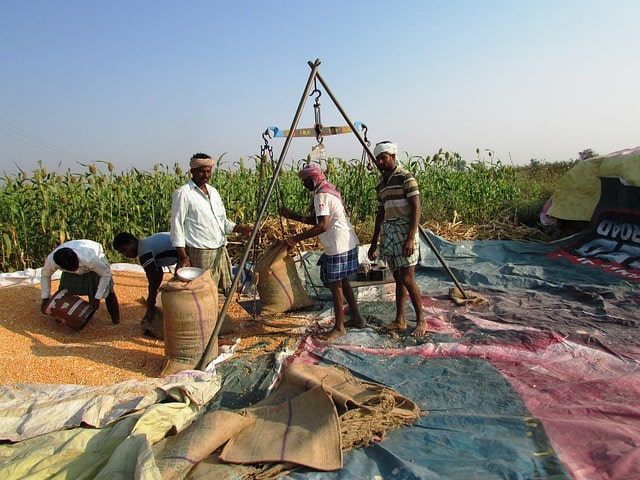

The Minimum Support Price (MSP) is a crucial mechanism through which the government supports farmers by purchasing their crops at a pre-determined price.
Annually, the Government of India announces MSPs for 22 major agricultural commodities, including 14 Kharif crops, 6 Rabi crops, and 2 commercial crops. In addition, MSP for toria and dehusked coconut is also fixed based on MSPs of rapeseed & mustard, and copra, respectively.
Aligned with the commitment outlined in the Union Budget 2018-19, the Government has consistently raised MSPs to ensure they are set at least 50 per cent above the All India weighted average Cost of Production.
Notably, this calculation includes considerations such as family labour, acknowledging the collective efforts of entire farming households rather than solely focusing on individual farmers.
Furthermore, the Government's proactive measures have ensured enhanced procurement and timely payments to farmers, ensuring that the benefits of MSP hikes translate into tangible support. The procurement of foodgrains has increased from 761.40 lakh metric tonnes in 2014-15 to 1062.69 lakh metric tonnes in 2022-23, benefitting more than 1.6 crore farmers. The expenditure incurred (at MSP values) on procurement of foodgrains increased from Rs. 1.06 lakh crores to Rs. 2.28 lakh crores.
Notably, during the last 10 years (2014-24), the government spent Rs. 12.18 Lakh Crore to buy 6751 LMT of Paddy and Rs. 5.44 Lakh Crore to buy 3073 LMT of Wheat. This is a substantial increase as compared to the previous 10 years (2004-14) when the government spent Rs. 4.40 Lakh Crore to buy 4590 LMT of Paddy and Rs. 2.27 Lakh Crore to buy 2140 LMT of Wheat.
[By Nimish Rustagi/Himanshu Pathak/Ritu Kataria/Pinak Pani Datta]